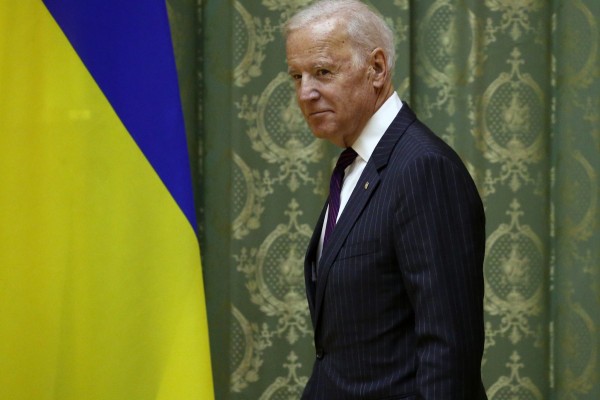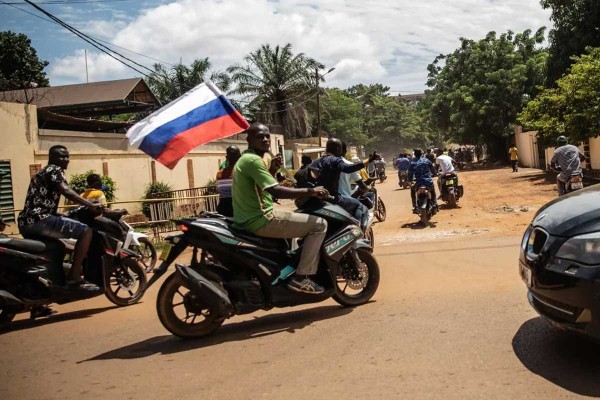Next year in Ukraine, expect the unexpected
Robinson: We should treat all current and future prognostications about the war with a massive dose of salt

Ukrainian President Volodymyr Zelensky addresses a crowd at an end-of-year press conference in Kyiv, December 19, 2023. Photo courtesy President of Ukraine/Flickr.
“No other activity is so continuously or universally bound up with chance,” wrote the great Prussian strategist Carl von Clausewitz in his book On War. To Clausewitz, war resembled a “game of cards,” full of uncertainty. Endless little things (“friction” in Clausewitz’s terminology) interfered in the best laid plans, rendering them null and void. There’s one thing you should never be surprised by in war—the fact that you’ve been surprised.
Writing in the aftermath of the Napoleonic Wars, Clausewitz was reacting to the Enlightenment thinking of the previous century. This had tended to the view that reason could determine scientific laws for every form of human activity. Eighteenth century strategists like Dietrich Heinrich von Bülow and John Lloyd had regarded war as a science—all one had to do to succeed was to learn its laws and apply them. Clausewitz argued that this was nonsense. War was a human endeavour, and human psychology could not be reduced to mathematical equations. It was an “interaction,” “not the action of a living force upon a lifeless mass, but always the collision of two living forces.” Mathematical concepts of war were wrong, said Clausewitz, because “They aim at fixed values, but in war everything is uncertain.”
And so it is. As events in Ukraine have shown, efforts to predict how war will progress have been proven wrong time and time again. Perhaps there is a pundit out there who correctly predicted that things would turn out as they have, but if so, he or she is doing a very good job of hiding. As the war in Ukraine nears the end of its second year, one must recognize that almost every prognostication about it has been wrong. Consequently, one should treat all current and future prognostications with a massive dose of salt.
In the first place, many analysts (this author included) believed that Russia would not actually invade Ukraine. After it did, the overwhelming majority of people believed that Russia would win in a matter of weeks. They also didn’t expect Western states to provide military aid on the scale that they have. Taken by surprise by Ukraine’s resistance, it took them a while to readjust. When the Ukrainian army launched a major offensive in autumn 2022, recapturing significant amounts of territory, next to nobody saw it coming.
At that point, military pundits overcompensated for previous errors. By the beginning of 2023, the overwhelming consensus was that Russia was on the ropes and a Ukrainian victory was inevitable. Twelve months ago, expectations were running high for a much vaunted ‘counteroffensive’ due for spring 2023, which, we were told, would sweep the Russians from southern Ukraine and bring the Ukrainian army within reach of Crimea. General Ben Hodges, former commander of the US army in Europe, even went so far as to claim that Ukraine would ‘liberate’ Crimea by August 2023. Others foresaw the imminent collapse of the ‘Putin regime’ in Moscow. As popular Russia watcher Mark Galeotti put it: “Putin has reached so far that he is beyond bringing back from the precipice. The only question is when he falls.”
Fast forward a year, and everything looks very different. Ukraine’s counteroffensive proved to be a complete failure, and the military initiative has now passed back into the hands of the Russians, who are attacking on multiple fronts. Whereas once Western economists predicted that the Russian economy would collapse due to sanctions, now they say that its problem is that it is growing so fast that it is ‘overheating,’ or as The Economist puts it, is “dangerously hot.” Far from running out of missiles and other weapons, Russia is churning them out in ever growing quantities. This was not meant to happen. Meanwhile, Putin seems more secure than ever, enjoying an approval rating of 83 percent and certain to be re-elected next year.
All this has led commentators once again to overcompensate. Gone are the triumphant tones that accompanied op-eds at the start of the year. Instead, the mainstream English-language media is now home to clouds of doom and gloom and suggestions that Ukraine and its Western backers moderate their demands and accept some sort of compromise with the Russian Federation while it is still possible. In a typical example, the New York Times published an article on December 27 declaring that Ukraine should consider an armistice that would involve the loss of territory to Russia. Such talk, very rare a year ago, is now quite common.
Ukraine’s military failures in 2023 help explain this. So too does the political situation in the United States. With funding for Ukraine stuck in Congress, and President Joe Biden lagging behind Donald Trump in most (though not all) opinion polls, another element of Clausewitzian uncertainty has been added to the equation. Meanwhile, victories for the far-right in Slovakia and the Netherlands have strengthened perceptions that Europeans are tiring of the war and increasingly unwilling to give unconditional aid to Ukraine. While a complete end to support for Ukraine is implausible, it seems unlikely that the Western world will be willing to provide the same levels of military aid in 2024 as it did in 2023. Given that the 2023 levels were insufficient to bring victory to Ukraine, it is hard to see how future support will be sufficient either, especially in the light of rising Russian military production.
Consequently, the general consensus is now that Ukraine’s best hope for 2024 is to go onto the strategic defensive, husband its resources, and through a combination of mass mobilization of Ukrainian citizens and some degree of Western support, build up a new reserve force that could possibly be used for an offensive against Russia in 2025. The hope is that Ukraine will be able to survive whatever Russia can throw against it over the next 12 months so that it can then be in a position to regain the initiative.
This is, though, something of a long shot, a hope rather than anything else. There is a growing sense that the long term favours Russia more than it favours Ukraine. This in turn strengthens the sense that it might be better to freeze the conflict now rather than wait until things have gotten even worse.
This is probably good advice, but the uncertainty that shrouds any military endeavour makes it difficult for Ukraine and its supporters to accept it. Furthermore, while Ukraine currently lacks the capacity to win the war, so too does Russia. Ukraine may be down, but it is far from out. It retains the ability to inflict serious damage on the Russian military, as seen by the recent destruction of a Russian naval transport in the port of Novocherkassk. And just as the Ukrainians struggled to advance during their counteroffensive, so too have the Russians struggled to make headway in their recent attacks. Neither side as yet has an answer to the tactical problems caused by modern weaponry, especially drones, which give a huge advantage to the defensive. At present, things appear to be stuck.
Stuck now does not, however, necessarily mean stuck forever. “Stuff happens,” as Donald Rumsfeld once said. Clausewitz was correct. War has so many variables that attempting to predict its every twist and turn is somewhat foolish. At some point, the balance of power in any given conflict may shift so overwhelmingly in favour of one side or another that one can safely put one’s head above the parapet and predict the outcome. But in the case of Ukraine, we are far from reaching that point. If 2022 and 2023 were any guide, then in 2024 one should expect only one thing—expect the unexpected.
Paul Robinson is a professor in the Graduate School of Public and International Affairs at the University of Ottawa and a Senior Fellow at the Institute for Peace and Diplomacy. He is the author of numerous works on Russian and Soviet history, including Russian Conservatism, published by Northern Illinois University Press in 2019.










